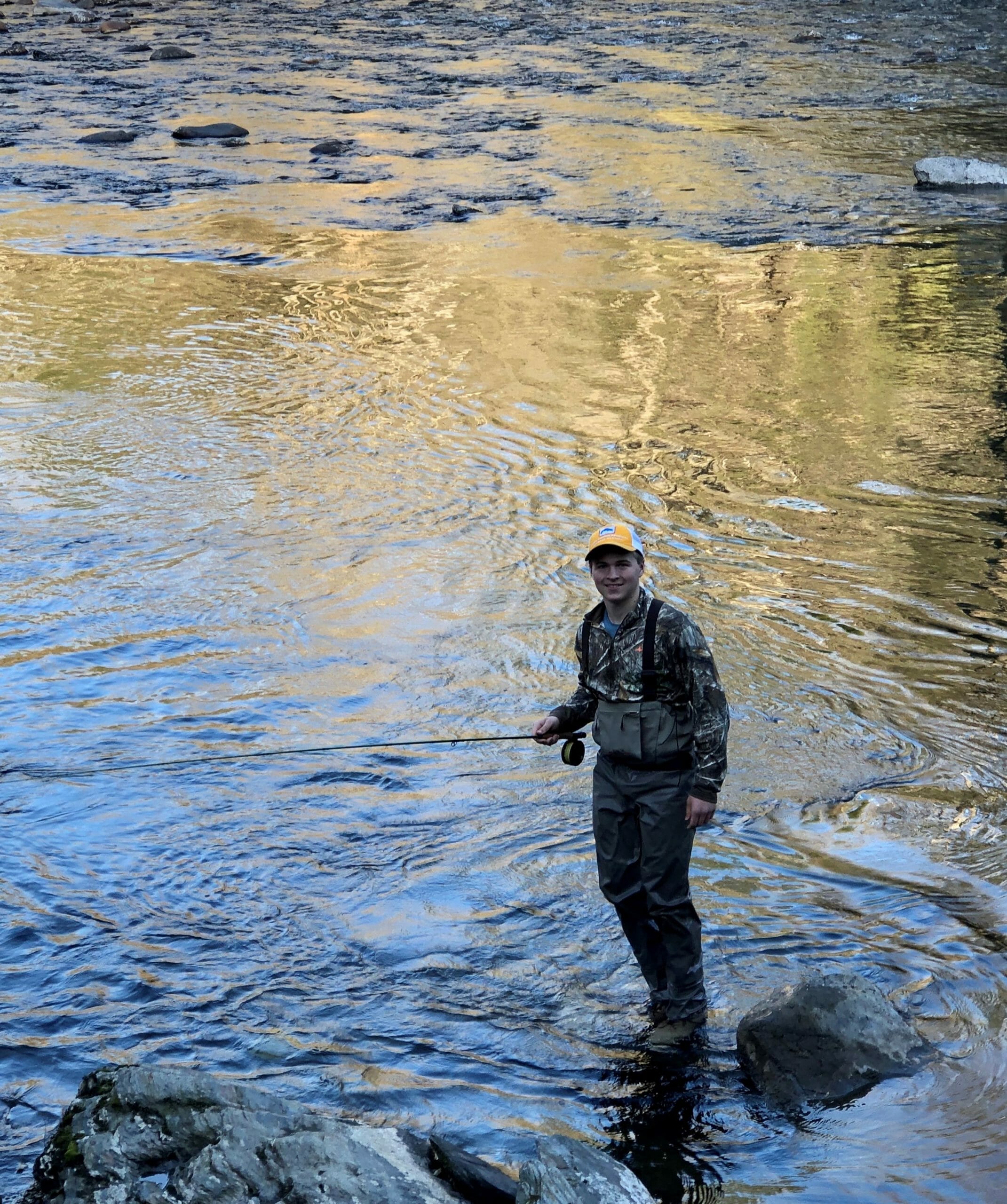Editor’s Note: Each year, participants at Trout Unlimited regional Youth Fly Fishing and Conservation summer camps are invited to enter the TU Teen Camp Essay Contest. The prompt for 2019 was “Why is conservation important to fly fishing?” We received many wonderful entries and are pleased to share the top five essays. To find a camp near you in 2020, visit www.tu.org/camps
By Zeke Culbreath—Third Place
Everyday fish face new challenges, whether it be polluted water, dammed rivers or loss of habitat.
Many salmon and steelhead are now confined to the ocean, unable to spawn in the rivers where they were born, runoff from farms floods rivers with harmful chemicals that kill aquatic insects and fish, and rising water temperatures due to the loss of shade and a warming climate. These are just a few of the problems that fish face constantly. It is our job to protect the environment, especially when we are the ones who caused the problems in the first place. If we want to keep fly fishing, we first have to save the fish we are wanting to catch.
A common problem now is dams blocking the way for anadromous fish. These fish spend most of their time at sea and return to their place of birth to spawn. Dams are blocking them from getting to their spawning grounds, which prevents the reproduction of the species. If nothing is done, the population would dwindle down to nothing and fly fishers would no longer be able to fish for certain species such as salmon or steelhead. Conservation efforts have led to the building of fish ladders and even the removal of dams, which should help the population increase and allow more people to enjoy fishing for these fish.
Pollution is another major threat to some species. Runoff from farms can carry pesticides that would kill aquatic insects that the fish need to survive. Laws have been passed such as The Clean Water Act that would help prevent this from happening. To add to that, the building of riparian zones can greatly reduce the amount of pollutants that get to the river. Open pit mines are another serious threat because they leak toxic chemicals into the water that can kill fish. Conservationists have stood up against mining companies that want to build Pebble Mine in Bristol Bay, the largest salmon fishery in the world. Mines like these could decimate the remaining wild salmon population and other fish species if nothing is done to stop it.
One problem that most fly fishers face is finding fish in the heat of summer. Species such as trout thrive in cold water but cannot handle warm water very well. With the warming climate, logging companies cutting down trees, and the hemlock trees being destroyed by invasive insects, the water temperature is rising to the point where it cannot support trout and other species. Without the work people have put in to help the trout survive the warmer weather, we would see significantly lower population numbers. One thing we did at Trout Camp was make small dams out of logs that create a deep pool of water where trout can shelter in during a drought or hot weather. Another thing people have done is plant trees along riverbanks. This creates shade and can also prevent erosion. Both methods can help trout survive the summer months and can help anglers get a chance to fish when it is hot.
To me, fly fishing is more than something I do just for fun. It’s a different mindset. It’s about protecting what we already have and making it better so that future generations can enjoy fly fishing. It’s about teaching others how to fly fish. It’s about keeping fly fishing alive, and the only way that is possible is if we still have fish we can fish for. Without conservation, we would not be able to enjoy the sport of fly fishing. As fly fishers, it is our job to protect what we love, everything from bonefish on the flats to tiny brook trout in a small mountain stream, so that others can enjoy fly fishing in the future.
Zeke lives in Tifton, Georgia, and is a member of the Middle Georgia Trout Unlimited Chapter. He attended a youth camp hosted by the Georgia TU Council. His favorite stream is found n the Great Smoky Mountains of Tennessee.



